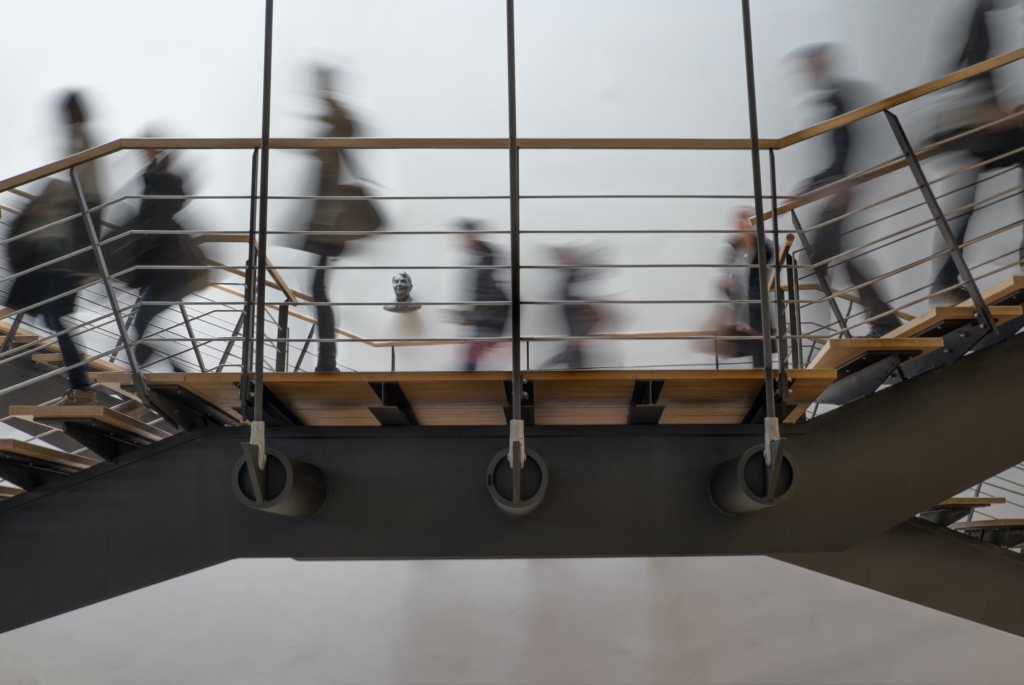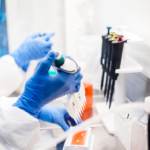Making Baschar, Nele, and Darja Strong
Income poverty, low educational qualifications, poor German language skills, and experiences of migration and displacement – these are challenges faced by many families with children in socially disadvantaged neighbourhoods. The research alliance Schule macht stark – SchuMaS (School makes you strong) aims to address these challenges and is working with schools at corresponding locations on a long term basis.
By Melanie Biskup
From the everyday life of a school: Baschar from Syria is still having difficulties with his math problems. Lukas often gives up quickly in frustration. Nele is already finished with her work after five minutes, and Hannah can’t even concentrate for that long. Darja from Ukraine is still learning German.
Learning under these conditions is the order of the day at many schools, especially in ‘socio-spatially disadvantaged locations’ – where many people receive government aid, many families speak only their language of origin, and children do not learn German until they start school. ‘We are currently teaching children of 20 different nationalities plus 20 children with inclusion needs at our school. That’s a challenge that involves a lot of responsibility’, agrees Andrea Martini-Heckhoff, head teacher of Gerhart Hauptmann Primary School in Duisburg.
How can teachers provide their pupils better support with reading, writing, and arithmetic, while also fostering their social and emotional development? The research alliance Schule macht stark – SchuMaS (School makes you strong), launched in 2021, aims to find answers to this and other questions. As a university with a long tradition in the field of educational research, UDE is one of the 13 project partners (see info box).
What makes SchuMaS so special is that it is not only the largest project to date to support schools in socially disadvantaged locations – it runs nationwide and is receiving 125 million euros in funding – but also differs from other initiatives in that school practice and science are closely interconnected. Two hundred schools are participating in the project, including that of Martini-Heckhoff.
The Interdisciplinary Centre for Educational Research (IZfB) at UDE is part of the research alliance. ‘Under the umbrella of IZfB, we collaborate closely at one of four regional SchuMaS centres in a team of educational and social sciences, humanities, and mathematics. The different perspectives enable us to provide the schools better support, but also to address research questions together’, explains Dr Susanne Farwick, an educational scientist participating in the regional SchuMaS centre at IZfB. The centre has been accompanying around 60 schools in North Rhine-Westphalia and Lower Saxony since 2021.

GETTING AT THE ROOT OF THE PROBLEM
The research alliance has identified the most urgent challenges. It is above all the headships of the schools that are called upon: What structures and processes do they need to create so that teachers, social workers, psychologists, and volunteers can exchange ideas effectively? How can they develop schoolspecific visions and define goals, clearly communicate them to the teaching staff, and involve them in the process?
A second focus concerns the teachers themselves: How can they learn to better cope with stress and pressure? What can be helpful in challenging situations? And how can they support their pupils even better in their learning?
The third focus considers the out-of-school environment: How can schools cooperate meaningfully with institutions in their environment, for example with educational and cultural institutions, associations, or immigrant associations? How is it possible to specifically promote cooperation with families?
EXCHANGE ON COMMON CHALLENGES
To ensure that all this succeeds, the researchers of the regional SchuMaS centre bring the participating schools together on a regular basis: ‘By networking the schools, we enable exchange on common challenges, such as parental involvement’, reports Farwick. ‘If parents do not come to the school, we take a look at why that is the case and develop solutions to reach parents better in the future.’ Depending on the field of development, the schools can take part in various further training courses or workshops beyond the network and intensify their development work in a ‘virtual SchuMaS space’.
The interim survey planned for summer 2023 will reveal whether anything has already changed at the schools. So far, Andrea Martini-Heckhoff and her team associate the SchuMaS project primarily with a sense of relief: ‘It’s reassuring that the scientific data often confirm what we all intuitively perceive and do in our daily lives at school. The continuous support helps us – after Covid-19 and despite perpetual staff shortages – to again concentrate more on designing lessons.’
SCHUMAS – SCHOOL MAKES YOU STRONG
The research alliance is receiving 125 million euros in funding from the Federal Ministry of Education and Research for an initial five years as of 2021 and consists of 13 academic institutions. UDE is participating in the content clusters School Development & Management and Extracurricular Learning & Orientation in the Social Sphere with the four faculties Educational Sciences, Humanities, Social Sciences, and Mathematics; the neighbouring universities in Bochum and Dortmund are also collaborating. In addition, the Interdisciplinary Centre for Educational Research (IZfB) at UDE is responsible for one of the four regional SchuMaS centres that support the participating schools. The three other centres are located in Berlin, Frankfurt am Main, and Mannheim. The scientific director of the regional SchuMaS centre Duisburg-Essen is Prof. Dr Isabell van Ackeren-Mindl.
Main image: © unsplash



